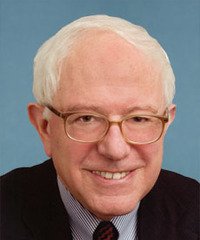
Bernie Sanders is serving his third term in the U.S. Senate after winning re-election in 2018. His previous 16 years in the House of Representatives make him the longest serving independent member of Congress in American history.
Born in 1941 in Brooklyn, Sanders attended James Madison High School, Brooklyn College and the University of Chicago. After graduating in 1964, he moved to Vermont. In 1981, he was elected (by 10 votes) to the first of four terms as mayor of Burlington. Sanders lectured at the John F. Kennedy School of Government at Harvard and at Hamilton College in upstate New York before his 1990 election as Vermont’s at-large member in Congress.
Effective primary health care is the foundation of a high functioning health care system. Study after study has shown that access to better primary care results in better health outcomes, reduced health disparities and reduced spending on avoidable emergency room visits and nursing home care. A strong primary care system not only makes Americans healthier, it saves our nation money, especially through prevention and by treating health situations when they arise – rather than waiting until those situations worsen and require more extensive and costly care. As ranking member of the Senate Subcommittee on Primary Health and Aging, Sen. Sanders is committed to initiatives and programs that promote primary health care. Sen. Sanders secured $12.5 billion in the Affordable Care Act to increase the number of Federally Qualified Health Centers (FQHCs) across the country and to deploy more doctors, dentists and other health care professionals in underserved areas through the National Health Service Corps (NHSC). Expanding the number of places where people can access care and increasing the number of health care providers across the country significantly increases the number of patients who have access to affordable primary medical, dental, mental health care as well as low-cost prescription drugs.
Sen. Sanders released a report titled Primary Care: 30 Million Patients and 10 Months to Go: Who Provide Will Their Primary Care and held a Subcommittee hearing in January 2013 on the profound primary health care access challenges in the United States. In April 2013 and in April 2014, Sen. Sanders held follow-up hearings on programs and policies that seek to address primary care workforce shortages. Sen. Sanders introduced S. 1759, the Teaching Health Center Reauthorization Act, to extend and expand the Teaching Health Center Graduate Medical Education (THCGME) program and S. 2229, the Expanding Primary Care Access and Workforce Act to improve access to primary care by reauthorizing many critical programs and increasing transparency and accountability of graduate medical education funds. In rural areas like Vermont, many people have a difficult time finding a primary health provider. That is why Sen. Sanders has led the effort to dramatically expand the number of health centers in Vermont and around the country. Currently more than 130,000 Vermonters receive primary care, including medical, dental, and mental health and substance abuse services, at FQHCs. Sen. Sanders is committed to expanding the program further and ensuring that every Vermonter and every American has access to quality health care in their community.
Senator Sanders believes every American should have access to safe, effective, and affordable prescription medications. Senator Sanders introduced S. 2023 in the 114th Congress, the Prescription Drug Affordability Act. The bill would instruct the Secretary of Health and Human Services negotiate drug prices with pharmaceutical companies to bring down costs for the Medicare program, prohibit brand name drug makers from paying competitors to keep lower-priced generic substitutes off the market, and make it easier to import lower-cost drugs from Canada. Sen. Sanders was the first member of Congress to take his constituents across the Canadian border to buy their prescription drugs at a fraction of the price they were forced to pay in the United States. [The bill also creates tougher penalties for drug companies that commit fraud by terminating market exclusivity for any products made by companies convicted of federal fraud, such as off-label promotion, kickbacks, anti-monopoly practices, and Medicare fraud. Moreover, to make drug pricing more transparent, pharmaceutical companies would be required to disclose the total costs of research and development and clinical trials, as well as the portion of drug development expenses offset by tax credits or paid by federal grants.]